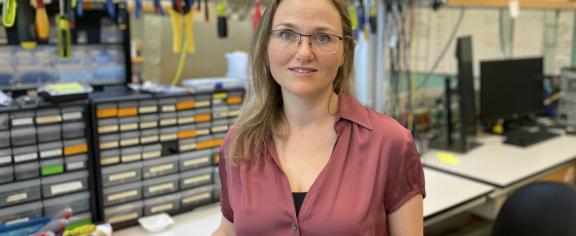2024-05-07
Method Provides Users Options When AI Rejects or Discriminates Against Them.
2024-04-29
A new collaboration is paving the way for OMSCS students to connect with interdisciplinary research projects in labs across campus.
2024-05-06
Cardiologists and surgeons could soon have a new mobile augmented reality (AR) tool to improve collaboration in surgical planning.
2024-05-09
Biomedical engineer Annabelle Singer has spent the past decade developing a noninvasive therapy for Alzheimer’s disease that also could benefit patients with a host of other neurological disorders, from epilepsy to multiple sclerosis.
2024-05-08
Georgia Tech researcher investigates how rainfall will change as Earth’s atmosphere heats up.
2024-05-08
Growing the careers of research faculty at Georgia Tech is an integral part of Research Next, the strategic plan for the Institute’s research enterprise.
2024-05-02
The researchers’ results have created a new resource for developing next-generation, ultra-sensitive quantum electronic devices.
2024-05-02
The new interdisciplinary Ph.D. in Neuroscience and Neurotechnology is expected to enroll its first graduate students in Fall 2025. Sciences will also offer a new Minor in Neuroscience, beginning Fall 2024.
2024-05-02
First phase of innovation district promises to encourage medical advances, drive economic growth, and inspire future generations
2024-04-30
Stroud joins nine newly appointed Fellows and ten ESA Early Career Fellows, elected for "advancing the science of ecology and showing promise for continuing contributions" in the field.









